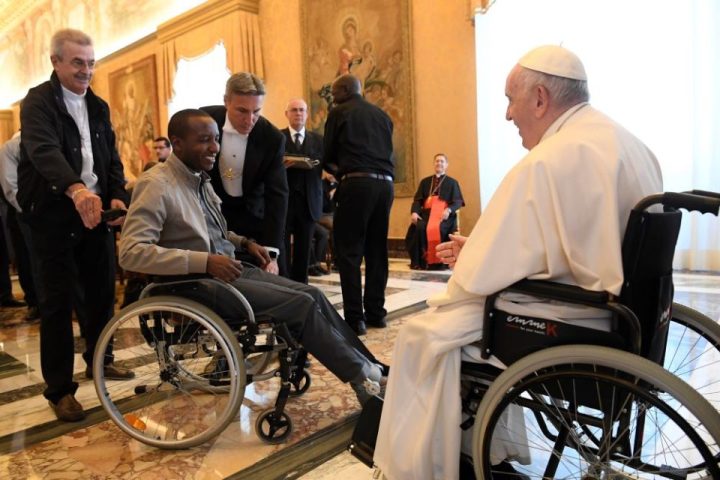
« Lord, if you wish, you can make me clean » (Matt 8:2).
Gen 17:1, 9-10, 15-22; Matt 8:1-4
If there are parallel themes in today’s readings and yesterday’s commemoration of Sts. Peter and Paul and the first martyrs of Rome, they focus us on God’s paradoxical ways. Jesus’ ministry attracts the poor, lepers, cripples, tax collectors and prostitutes. It seems an awkward advertisement for the kingdom of God, and it overturns every expectation for the promised Messiah.
Abraham cannot keep from laughing when God promises him a son with Sarah. He is 100 years old, and she is 90. How can this be? When the promise comes true, their son, Isaac, will be named for this laughter.
The first Christians were martyred by Nero as scapegoats for his own plan to burn down the shanties of Rome to make way for a new and more glorious city. The victims may have included Peter and Paul, the leaders of the movement. It must have seemed like a disastrous decapitation for the early church.
Yet, the people Jesus reached first and foremost during his ministry were precisely the lowly ones who would reveal God’s mercy. A leper is cleansed in today’s Gospel. His plea is couched in doubt. If you wish, he says, you can heal me. Perhaps Jesus will not heal him, rejected and disfigured as he is before God and society. Yet, Jesus lovingly reaches out and touches him, restoring his human wholeness; then, even more, his destiny with God.
The Gospel never ceases to reach out and downward to touch the most hopeless victims. The first becomes last and the last first. An upside-down world that challenges the high and mighty is at the heart of the Gospel of justice and love. Nothing is impossible for God.
Abraham would become the father of a great nation through Isaac and his descendants. This father of Judaism was also the father of Islam, the Arab peoples who responded to the call of the Prophet Mohammed. Abraham is the father of the complicated genealogy that produced Jesus. Nothing is impossible for God.
In one of the great miracles of the early church, the martyrs of Rome inspired a surge in new members to the church. As Tertullian observed, the blood of martyrs proved to be the seed of conversion by demonstrating the call of God in the first Christians martyrs. Nothing is impossible for God.
If we seek to know God, we should look in the places where our hopes seem lost and our efforts are frustrated. Prayer reveals our desire for good and signals that what we ask for can come true. If we stay focused and faithful, even in the midst of suffering and delay, God will not disappoint. This is the joy of the Gospel.
Farewell Postscript
Pencil Preaching was a habit that began with the Scriptures of the day. The Word of God is a potent invitation to encounter the mystery of Providence in our lives and our world. The Bible’s magnificent stories, rugged, poetic prayers, majestic summaries and deep promises reveal the face of God. This is eminently true in the story of Jesus, our Jewish brother, whose life, death and resurrection revealed him, paradoxically and mysteriously, as the Christ who fulfilled the Law and the Prophets and emerged as the Messiah of our deepest dreams.
It is no small act of faith to rise early, bring coffee or tea and our sleepy selves to the Scriptures, then believe that we will catch Jesus winking back at us, telling us to keep asking, seeking and knocking until we find him. Our failed and broken hearts prove that he has always been with us and understands our prayers. The living Word meets a troubled World in our imaginations (the biblical heart), and the day invites us to trust that God is at work. I pass Pencil Preaching on to you. Please continue to pencil yourself in and know that God is always with you and in you. –Pat Marrin



